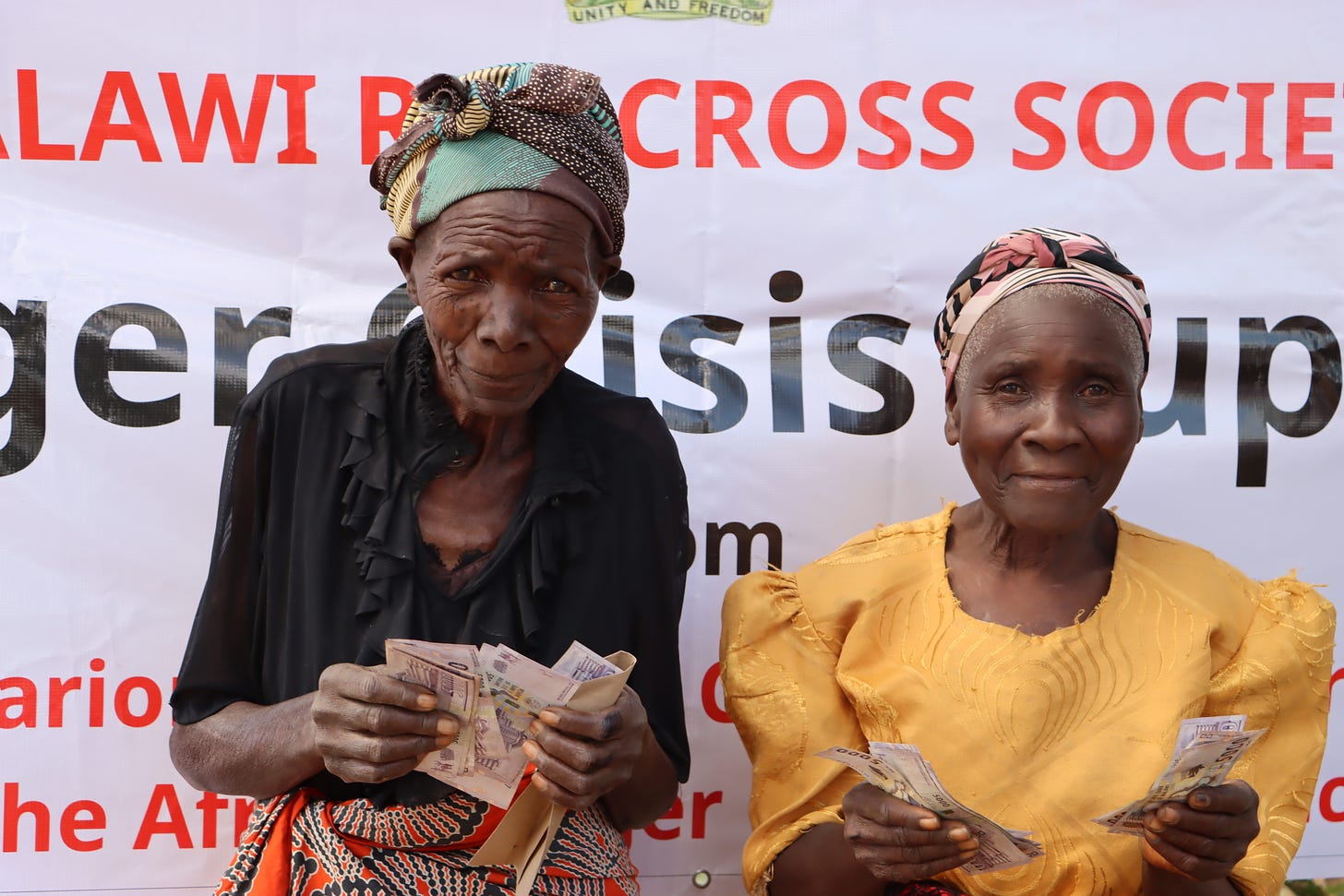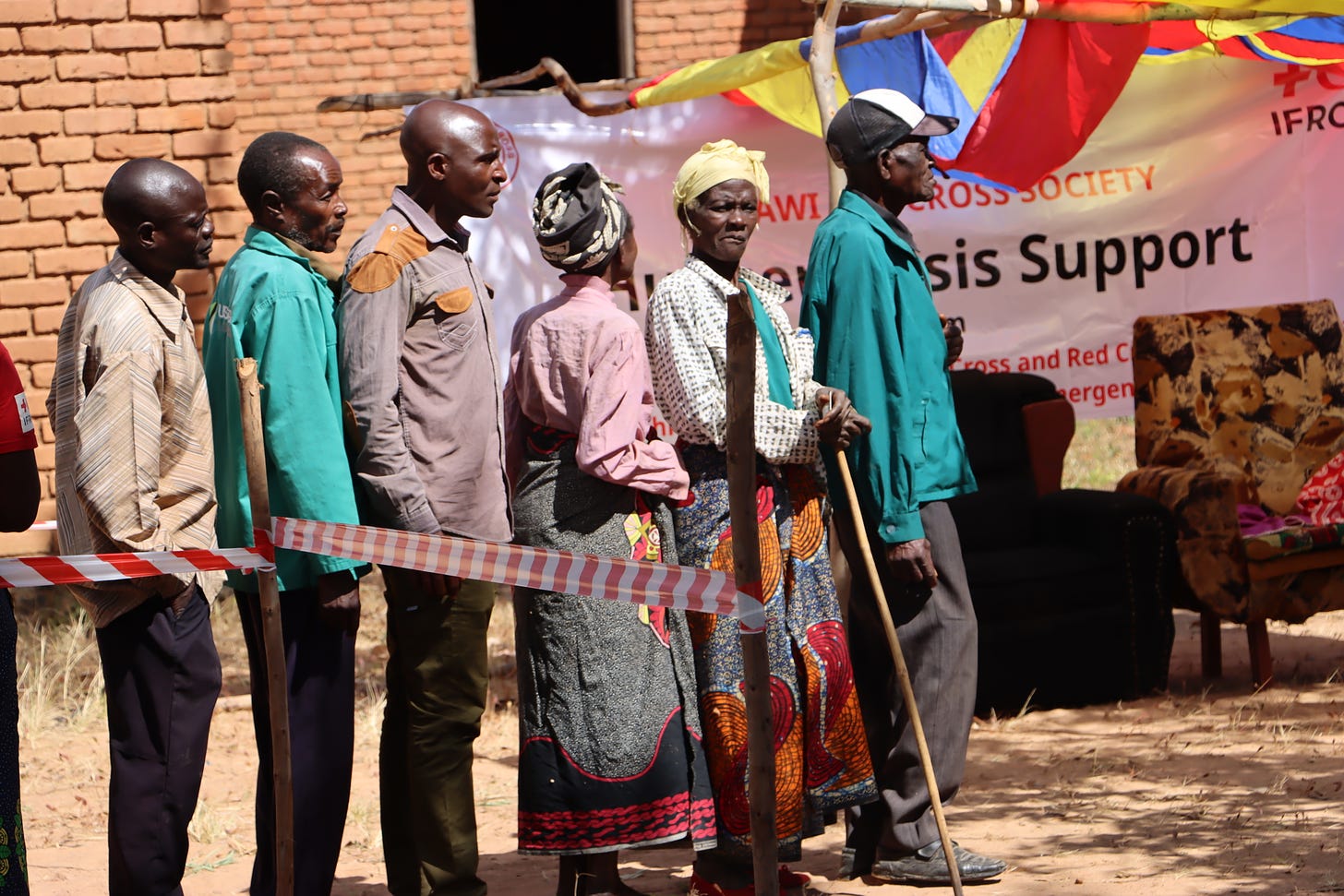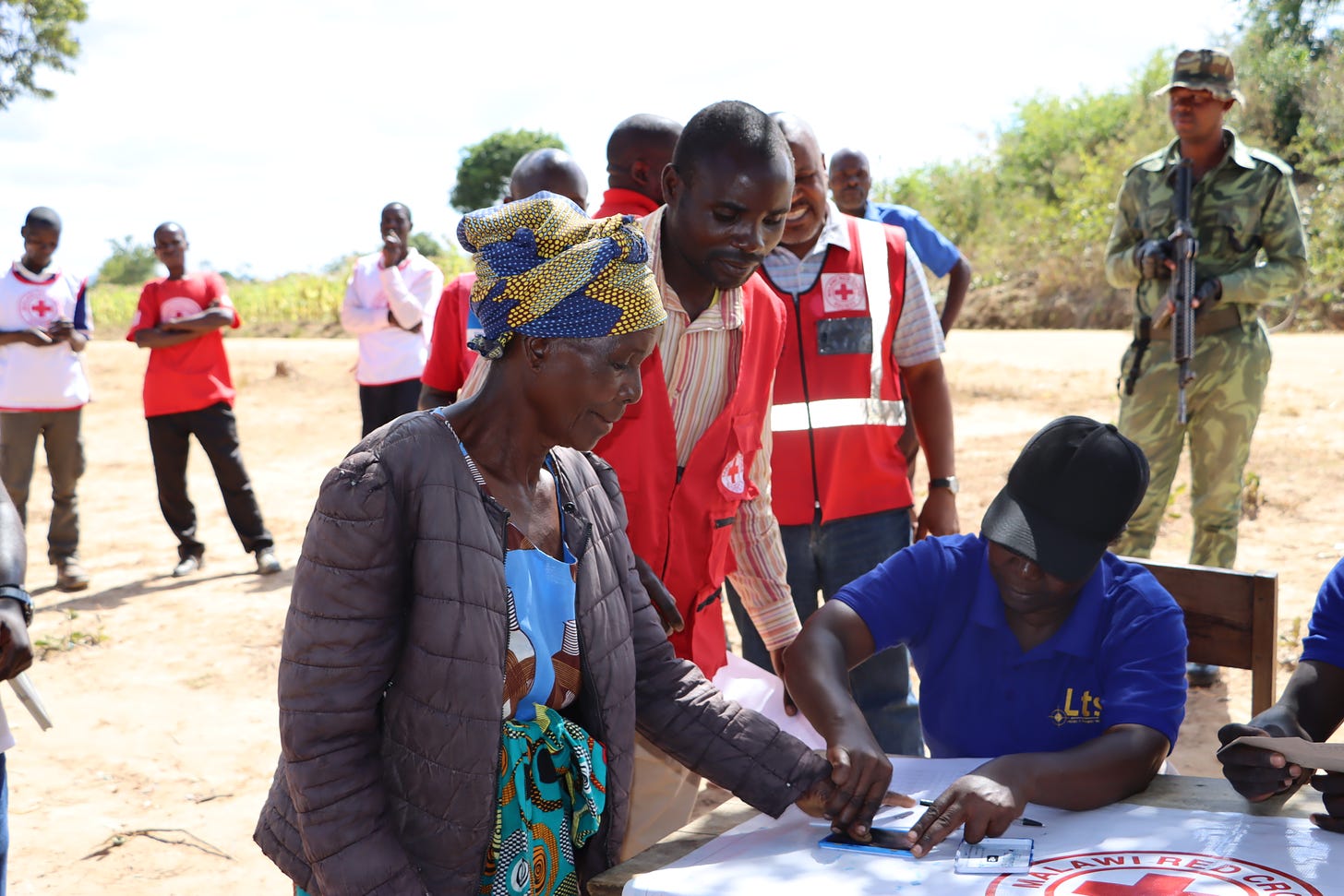Malawi Red Cross Society Combats Hunger Crisis with $1.3M Cash Relief
As families in Luwelezi in Mzimba picked up their modest cash payments, the scramble for more aid took on increasing urgency amid the ever-worsening crisis.
MZIMBA, Malawi - The Malawi Red Cross Society made a final cash distribution Thursday to some hunger-stricken families in Traditional Authority Mabilabo, part of its $1.3 million Hunger Response project aimed at alleviating the country's dire food insecurity crisis, writes Winston Mwale.
But the aid is only a temporary patch for the staggering need, the group's leadership acknowledges.
"I think as Red Cross, I would say we have made an impact even though we feel that there is still more," said Chifundo Kalulu, secretary general of the Malawi Red Cross.
"We are talking about 9 million people that are affected, which requires a lot of funds if we have to bring impact. The food situation in this country is very acute."
The distribution capped months of support to 11,508 households across districts like Kasungu, Karonga, Lilongwe and Zomba, totaling around K2.4 billion funded by partners including the Swiss and Danish Red Cross societies.
Each family received the equivalent of $108 in cash payments, as well as sweet potato vines and vegetable seeds to cultivate future crops.
"The farm inputs they have already received," Kalulu said.
"We have already distributed all the farm inputs that we are supposed to be providing to them."
In Traditional Authority Mabilabo, some 1,500 households benefited through two rounds of $28 payments and the agricultural support.
"We want to commend Red Cross Malawi for coming to our rescue in good time. They have responded positively and timely," said Veston Mulungu, a representative of the Mbelwa District Council that requested the aid.
"Our communities, households have been helped in a manner that was expected."
Mulungu said the influx of cash has provided a crucial lifeline for families facing a barren harvest due to cyclones and economic turmoil.
The money lets them afford basics from food to school fees and investing in small livestock.
"1,500 households in this community is not a small number. It's a very big number. It's going to make a very significant impact," he said.
"They will be able to do development works in their fields, in the community because they have something to eat."
Still, humanitarian groups warn that nearly half of Malawi's population is currently facing acute hunger, exacerbated by recurring natural disasters that have devastated crop yields.
Kalulu of MRCS said more fundraising and international support is desperately needed beyond the latest Red Cross intervention.
"We cannot leave it in the hands of government. We still need to also mobilize on our part as auxiliary to the government and other actors," she said.
"Let's make sure that at least we minimize the impact of the hunger situation in the country."
As hunger persists, the scramble for more aid took on increasing urgency across impoverished communities like Luwelezi.






